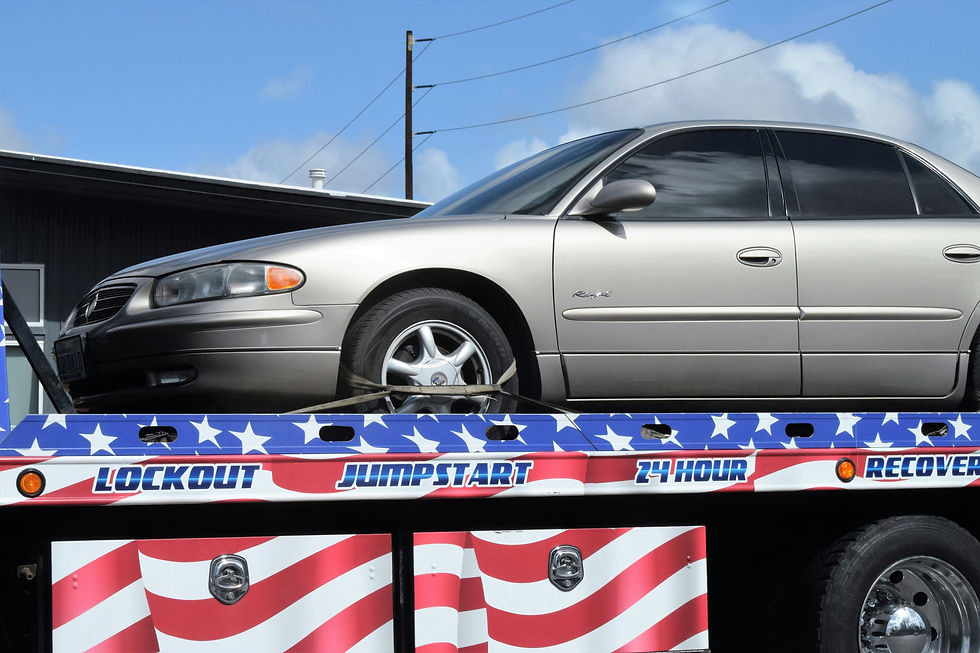Steps to Take Before Your Car Is Towed From a
- Elevated Magazines

- Sep 25
- 3 min read
Updated: Sep 26
Crash SceneWhen involved in a crash, emotions can run high, making it hard to think clearly. Knowing what steps to take can significantly affect the outcome for all parties involved. From assessing injuries to dealing with the aftermath, being prepared can prevent further complications. Educating yourself on the necessary steps ensures you handle the situation effectively and safeguard your rights.

Assess Injuries and Ensure Safety
The first step after a crash involves checking for injuries. Prioritize personal safety and the safety of passengers and other drivers involved. If anyone suffers significant injuries or cannot get out of their vehicle, contacting emergency services should be the first action taken. Staying calm is key; do your best to evaluate any injuries and provide help to others if qualified. After ensuring that everyone is safe, move your vehicle out of harm’s way, if possible.
If the car is not drivable, leave it where it is and assess the situation. Disturbing the crash site may complicate the investigation process for insurance or law enforcement. Being aware that having a local service towing your vehicle can help expedite removal and prevent further damage is beneficial. This ensures your car is towed safely and correctly. Check for potential hazards such as leaking fuel, broken glass, or traffic that could pose additional risks.
Use hazard lights or warning triangles to alert other drivers if your car remains on the road. Document the scene carefully by taking photos of vehicle positions, damages, and any visible injuries. Exchange contact and insurance information with other parties involved, even if the accident seems minor.
Contact Authorities and Document the Scene
After securing safety, contacting the police is important. An official report provides documentation for insurance claims and could be critical in potential legal matters. Ensure you obtain the police report number and the names of the officers present. This report contains valuable information about the incident, and having it on hand will streamline the process of dealing with insurance providers.
Collecting evidence at the scene is vital. Take comprehensive photos from different angles to capture the scene, positions of vehicles, and any contributing factors like traffic signs or road conditions. Record the contact details of witnesses; their statements may be important in confirming your account of the incident.
Notify Your Insurance Provider
Once the scene is documented and authorities have been involved, notifying your insurance company should be the next step. Most insurers require prompt reporting of accidents to investigate the incident thoroughly. Providing them with all the collected evidence will assist in a smoother claims process.
Check your coverage to understand how they will handle claims regarding your vehicle's damages and any bodily injuries. Input from a local service can ease the financial burden if they support insurance procedures. Prepare to discuss the situation with your insurance agent, providing accurate details without admitting fault, which could complicate matters.
Legal Representation is Necessary
If the crash involves significant damage, injuries, or a dispute in fault, seeking legal counsel may be a wise move. Insurance companies often aim to minimize their liability, which can leave victims at a disadvantage. An attorney proficient in accident cases understands your rights and how to advocate for proper compensation.
Free consultations with many attorneys allow you to assess your case without financial strain. In addition, they can help you navigate the claims process with your insurance provider. They will guide you through gathering the necessary documentation and any required legal action.
Understand Your Vehicle’s Towing and Repair Options
When the tow truck arrives, it's important to understand where your vehicle will be taken and what will happen next. Depending on your insurance policy, you may have preferences regarding where your car is towed. Make sure to communicate your desired towing destination if you want your vehicle to go to a trusted repair shop.
Taking the time to choose a reputable service can save headaches later when seeking repairs or claims processing. Make sure to know any associated costs in advance and clarify how payments will be handled. Some towing services work directly with insurance companies, which may allow you to bypass upfront payment.

Follow Up and Stay Informed After the Incident
After a crash, staying proactive regarding all ongoing processes related to the incident is vital. This includes following up on the police report, checking in with your insurance company, and ensuring your vehicle is adequately repaired.
If you decide to pursue any legal actions, maintaining communication with your attorney will keep everything on track. Awareness of timelines for repairs and claims can alleviate stress. Ask your repair shop about their estimated timelines and stay connected with your insurance provider to understand what is next.
Keeping organized documentation of all interactions and paperwork is necessary, as this will aid in any disputes that might arise later. Taking the steps outlined can help you navigate the post-accident situation more effectively, making the recovery process smoother and less overwhelming.
